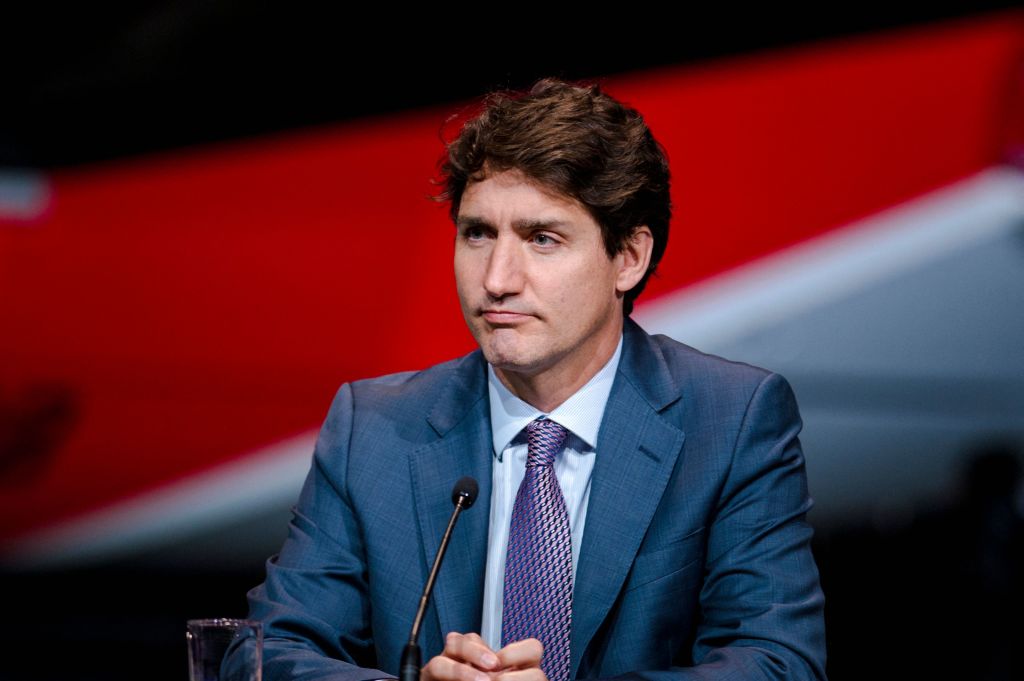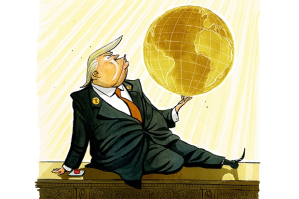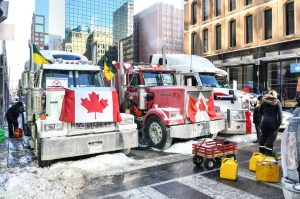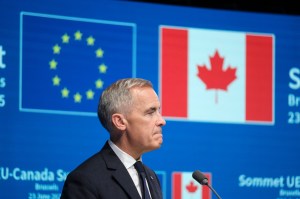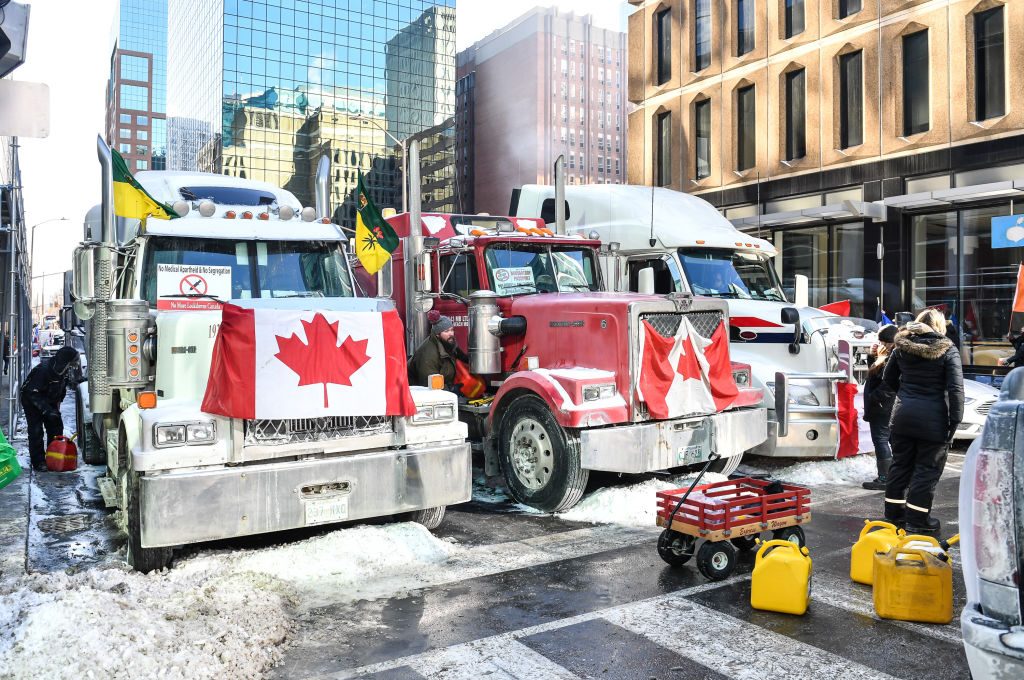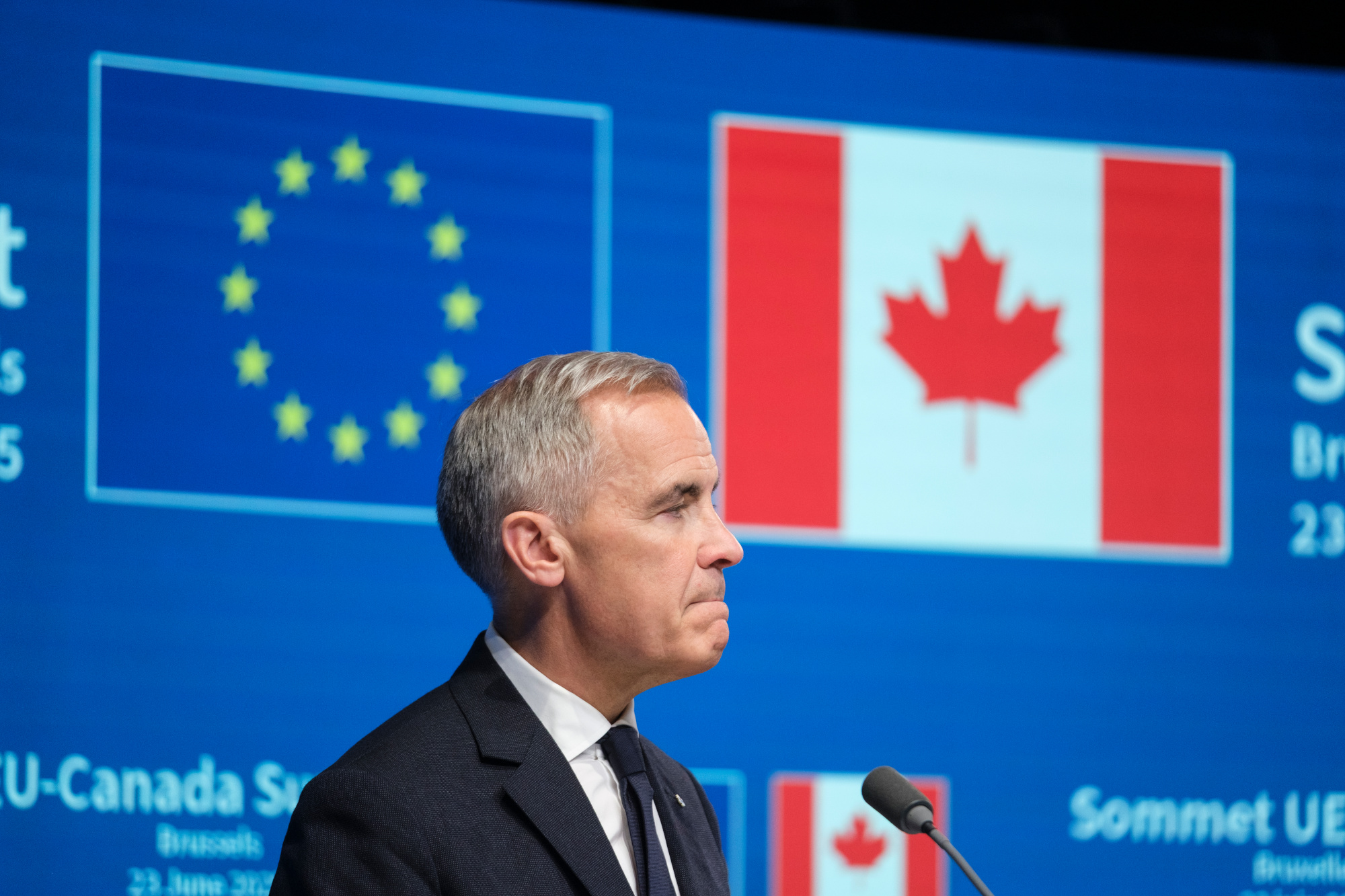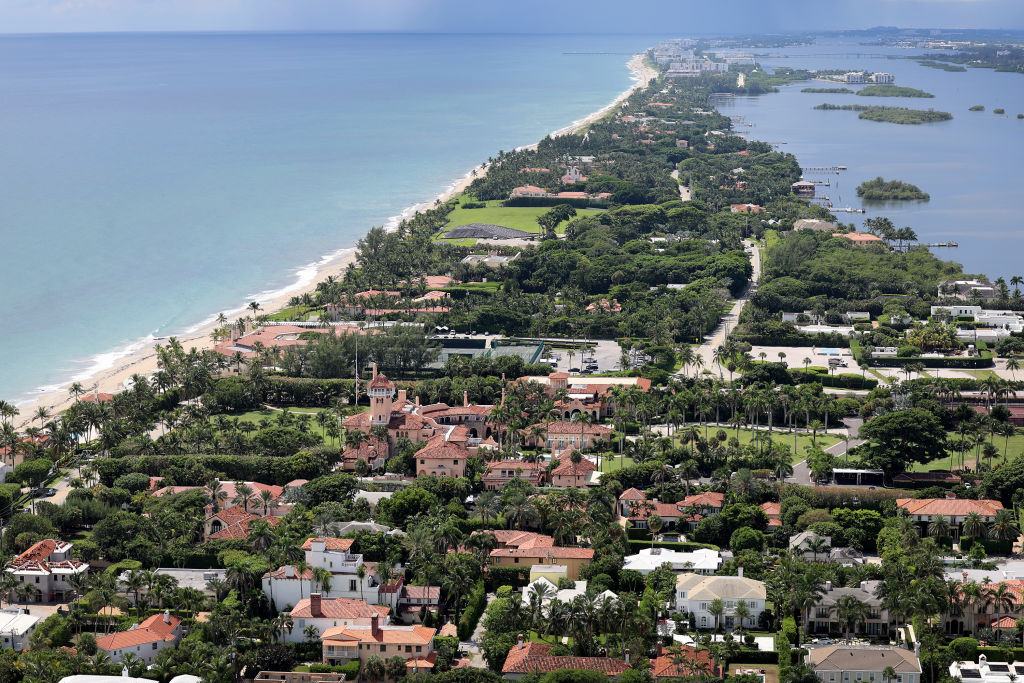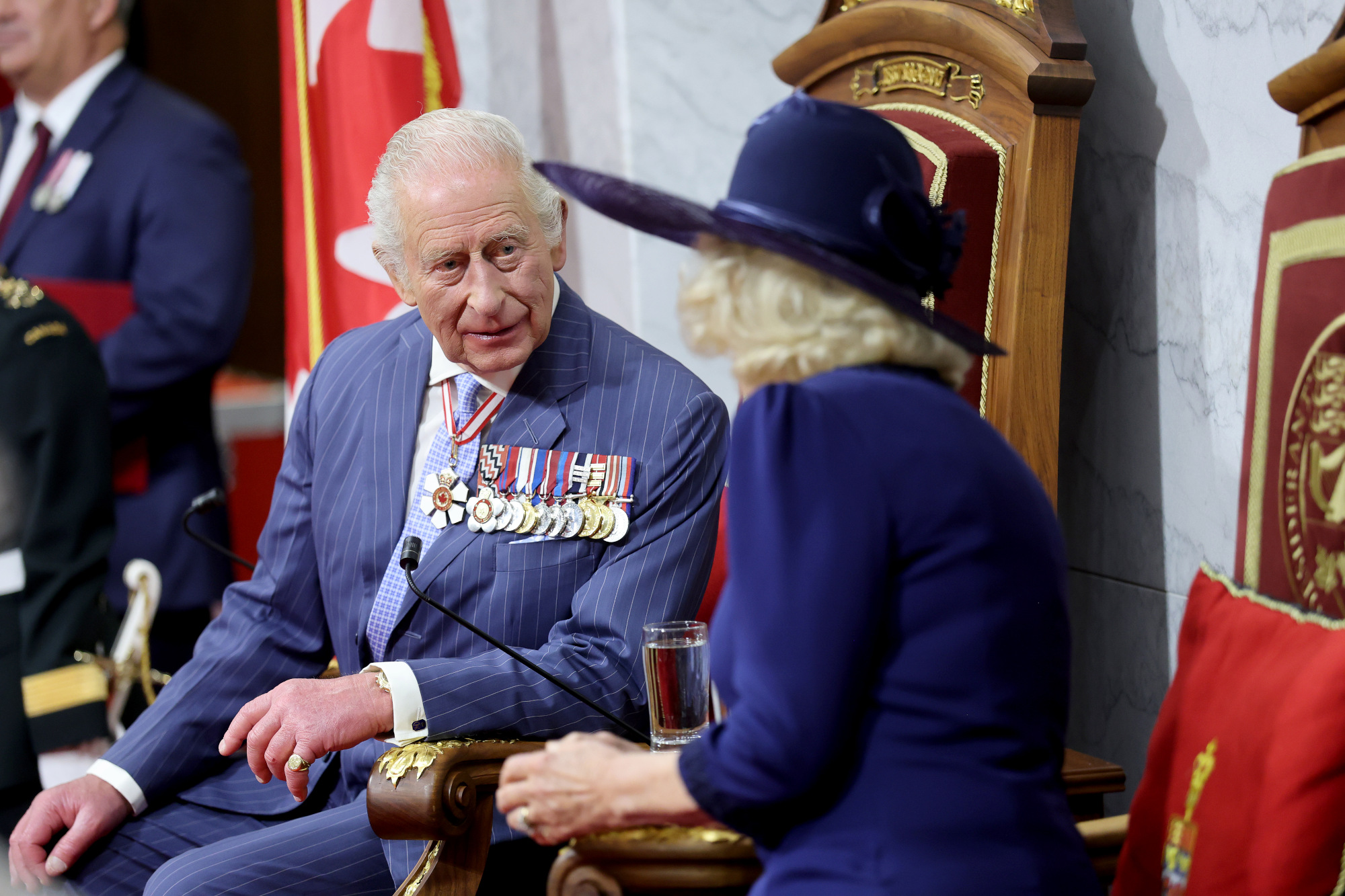On Friday, Justin Trudeau made his much-anticipated appearance before the Canadian Public Order Emergency Commission, where he gave testimony about his unprecedented decision to use the Emergencies Act last February to suspend civil liberties in Canada and suppress the trucker protests.
To the fascinated eyes of the public, it soon became apparent that although the well-coached prime minister was present before the commission in body, in spirit he was with Alice in Wonderland — that magical place where words mean what one wants them to mean, neither more nor less.
The key task of the commission is to determine whether or not the protests last February met the definition of a public emergency for the purposes of the Act, to wit: “an emergency that arises from threats to the security of Canada (as defined in section 2 of the Canadian Security Intelligence Service Act)” that cannot be dealt with using ordinary powers.
If the situation met this definition, then Trudeau is exonerated. If it did not, then he is disgraced and ought to resign (though he probably won’t). Perplexingly, the system allows the prime minister to make his own choice of judge: Commissioner Paul Rouleau, appointed by Trudeau, will make the final call.
So how did Trudeau come to the conclusion that honking horns, blocked traffic, bouncy castles, and dancing in the streets met the definition of a public emergency? That’s what we all wanted to know, and when the commission lawyer invited him to explain, Canada leaned forward eagerly, cupping its ears.
Instead of answering, Trudeau smoothly responded with a question of his own — one that reframed the issue on his own terms. “The question,” Trudeau answered, “is who’s doing the interpretation?”
Well, Mr. Prime Minister, the lawyer pointed out, the definition is written out quite clearly in the Canadian Security Intelligence Service (CSIS) Act. And the intelligence agency told the commission earlier that they assessed the situation at the time and determined that it did not, in fact, constitute a threat to the security of Canada as defined in the Act.
Upon which Trudeau explained carefully that the definition can mean one thing for the CSIS and another thing for the prime minister and the government. “It’s not the words that are different,” he explained. “The words are the same in both cases. The question is — who is doing the interpretation, what inputs come in, and what is the purpose of it?”
Or, as you might say if you lived in Wonderland, words mean what I want them to mean. Let’s get this straight: the prime minister and his advisors decided they could interpret the Act as they pleased and discovered a “serious threat to the security of Canada” existed based on… what exactly?
Not on the assessment of the national security agency, apparently. Not on the recommendation of police forces, either, as the Commission has heard from police at every level, who have unanimously asserted that they did not ask for the Emergencies Act.
So on what then?
On “threats of serious violence,” said Trudeau, while admitting there was no violence. “There was a sense that this was a broadly spread thing, and the fact that there was not yet any serious violence that had been noted was obviously a good thing, but we could not say that there was no potential for threats of serious violence.” (It’s true, of course, that in every free human being there is technically the potential for threats of serious violence, so we could, in Trudeau’s charmingly passive double negative, not say that there was no potential for it at the protest.)
Earlier in the commission hearings, spectators were entertained by the interim Ottawa police chief’s admission that while there wasn’t actually any violence at the protest, it “felt” violent. Another highlight occurred when a police representative was asked to explain claims that the truckers were “armed,” even though after smashing their way into the parked trucks, police found no weapons. Well, the policewoman responded, there were arms in the trucks — they had pry bars in their tire changing kits. Scary! Bad truckers!
Trudeau himself, when asked to identify the threats of violence, raved on about “trucks with unknown interiors” and “children used as human shields.” Of course, the whole world saw the happy children jumping on together on bouncy castles for probably the first time in two years after being locked out of playgrounds and gyms. But then, if everyone with a spare tire kit is a potential terrorist, every parent who lets their child play on a bouncy castle in what they presume to be a safe public place, is also potentially evil.
Could the police not have handled the situation using the methods already at their disposal, Trudeau was asked? After all, they said they had presented the government with a plan to disperse the protests that did not require the Emergencies Act on February 13.
“I would recommend people take a look at the actual plan,” Trudeau sniffed, throwing the RCMP, the Ontario police force and the Ottawa police force under the bus in one fell swoop. “It was not much of a plan.” Indeed, he clarified, it was a terrible, no-good, very bad plan, “full of holes,” unworthy of “even the most generous characterization” of a plan.
Neither the commission nor the public will be able to look at the plan, however, as a cross-examining lawyer demonstrated by putting the document up on the overhead screen, making it painfully clear to all that nearly every page was blacked out by government redaction. So we will never know the full scope of its shameful inadequacy.
What we do know now, however, is the precise nature of Team Trudeau’s relationship with reality. The question is not what actually happened or why. In Trudeau’s own words, “The question is, who gets to interpret it?”
When Humpty Dumpty tells Alice in Wonderland that words mean what he chooses them to mean, Alice is surprised.
“The question is,” she observes, “whether you can make words mean so many different things.”
“The question is,” says Humpty-Dumpty, “which is to be master — that’s all.”
Will Commissioner Paul Rouleau let Trudeau be master? We’ll find out in February 2023, the next season of the soap opera that is Canadian public life. The truckers and other ordinary Canadians who suffered under some of the world’s harshest vaccine mandates need to remember: we’re only extras on the show. What the world cares about is the adventures of our leading man.



